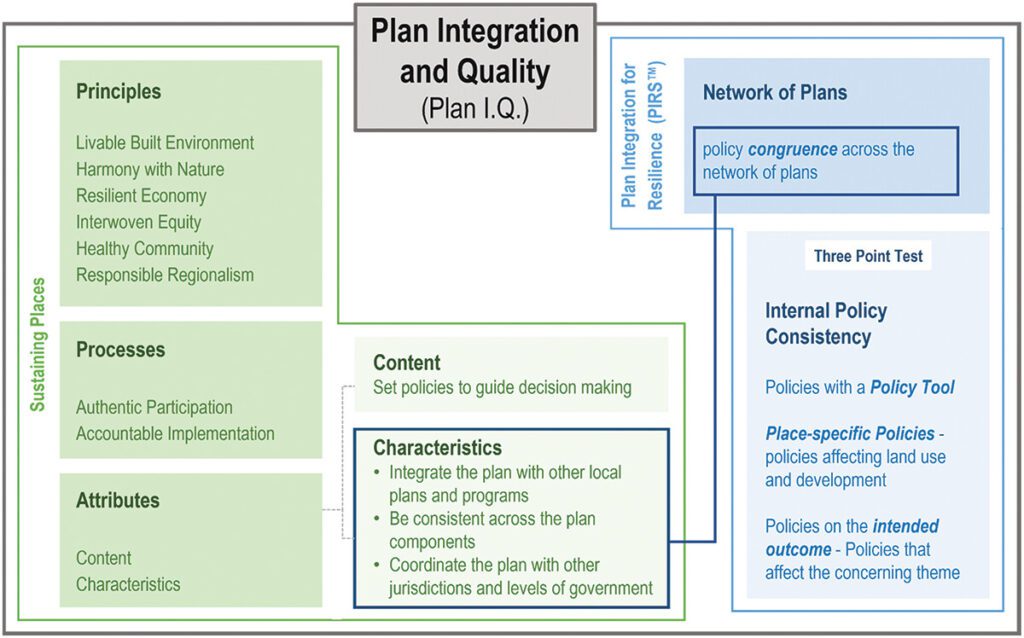Comprehensive plans can play a pivotal role in reducing hazard vulnerability. However, there have been limited tools to assess if a comprehensive plan is of high quality or is congruent with other plans in reducing hazard vulnerability. It is against this backdrop that this study introduces Plan I.Q. – a new approach to assess and improve the degree of plan quality and plan integration for comprehensive plans. This study first discusses the significance of comprehensive plans, particularly with regard to communities’ hazard vulnerability. It then synthesizes the state of arts of the approaches evaluating plan quality and plan integration. Based on this synthesis this study brings out the methods of Sustaining Places and Plan Integration for Resilience Scorecard™ – the former for assessing plan quality while the latter for evaluating plan integration. This study then elaborates how Plan I.Q. combines these two methods and applies it to Rockport, Texas, a city preparing for its new comprehensive plan. The research team tracks the degree of plan quality and plan integration of the city’s draft comprehensive plan throughout the application of Plan I.Q. It finds that the tool helps improve both these aspects. It also reveals other benefits associated with the application. These include the development of infrastructure policies that help reduce hazard vulnerability, stronger ties between planning agencies, and the adaptation of best practice policies.


